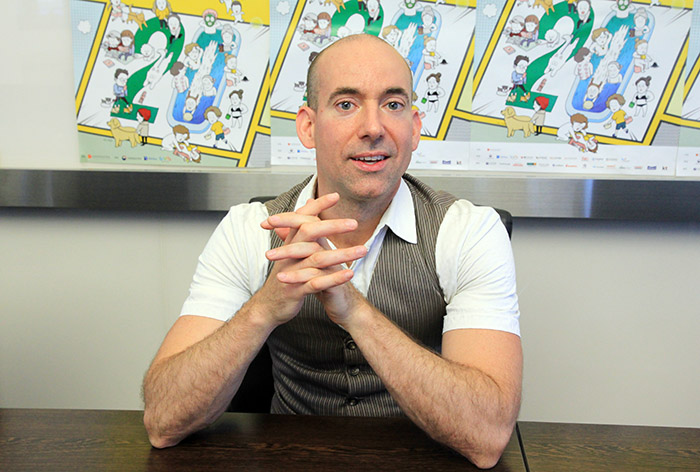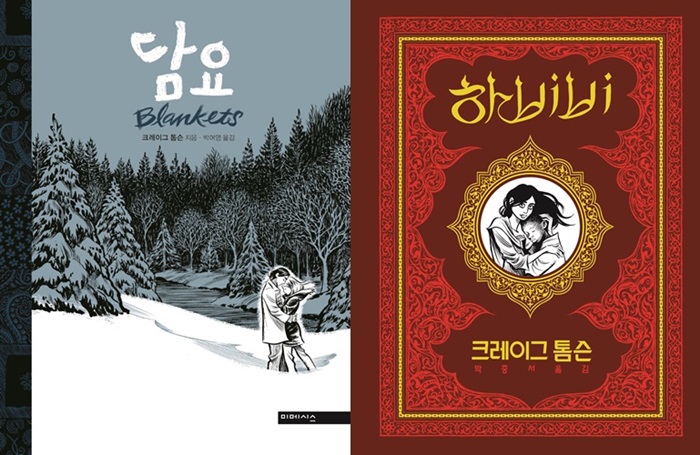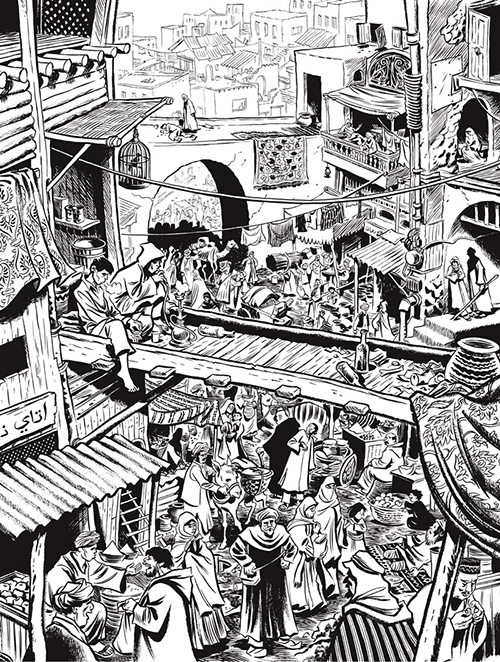
U.S. graphic novelist Craig Thompson talks about his 20s, at the Korea Manhwa Museum in Bucheon, Gyeonggi-do Province, on July 24. (Kim Young Shin)
By Kim Young Shin
July 23, 2017 | Bucheon
At the 20th Bucheon International Comics Festival, under the theme of “youth” this year, U.S. graphic novelist Craig Thompson was one of the most popular guests. He was invited to the special exhibition “Golden Youth,” which presented the works of 26 successful cartoonists all in their 20s.
Thompson described youth as being “passionate” and “pure.” In his 20s, he had to quit art school because he couldn't pay for tuition. He worked at a dozen jobs, including as a newspaper delivery man, a house painter and as a graphic designer. However, he never stopped drawing and finally became a successful graphic novelist.
His autobiographic work “Blankets” ranked No. 1 on Time magazine’s Best Comics list in 2003. It also won a Harvey Award and an Ignatz Award the following year. It was introduced to Korean readers in 2012 and has sold more than 10,000 copies so far.
Korea.net was able to sit down with Thompson, who's visiting Korea for the first time, to talk about his life and work and to hear his message for youth worldwide.
The theme of this year’s festival is “youth.” What was your youth like?
Youth is such a difficult time for young artists, but it’s also a very pure time. You have a lot of vitality and your artwork is a labor of love. It comes from a very sincere place. Now that I’m in my 40s, it’s so much more about career, finances and business, so I miss that purity of being a young artist.
When I was young, all I did with my free time was to draw comics. I had to work at day jobs, but then in all my evenings and weekends I drew comics. Now it’s quite the opposite. Now, comics are my day job, so when I have my free time, it’s the last thing I want to do.
Many young people in Korea are going through the same hardships that you had, such as bullying or a strict home environment. Do you have any advice or message you'd like to give them?
Your teenage years are your most difficult years because school is a very isolated community. A lot of times you're growing up in a small town, too, like myself. So you haven’t yet found other people that are like you.
A big part of adulthood is that your community expands. It’s a life-long journey to find people with whom you identify and to get out of that isolation of adolescence.
"Habibi" was released seven years after "Blanket," and the two works are very different. What inspired you to work on "Habibi?"
Part of it was born out of 9/11. At that time of my life, I didn’t have any friends who were Muslim and in the U.S. there was all this anti-Islam propaganda that came out of that trauma. It was sort of a quest to better understand Islam. I was reading the Quran for the first time.
The main theme of the book is the overlap between the Abrahamic faiths of Christianity, Judaism and Islam. They aren’t that different from each other. There are more overlaps and interconnections than differences.
“Habibi” is also about an environmental crisis, especially around water -- water shortages, drought, pollution -- and how all of those metaphors also work for the human body and spirit.
Are you working on your next book? Do you have any plans for your next book?
My newest work was inspired by Chinese landscape paintings. It's about the Earth and agricultural cycles. At least in the U.S., the agricultural industry is in crisis. We don’t really produce food four ourselves. We produce genetically modified food. We poison the soil with pesticides. Farming is no longer about family farming. It’s about corporate farming, mostly designed around non-food products.
ysk1111@korea.kr

Craig Thompson’s 'Blankets' (2003) and 'Habibi' (2011) are introduced in Korea in 2012 and in 2013, respectively. (Mimesis)


Pictures from Craig Thompson’s works 'Blankets' (above) and 'Habibi.' (Mimesis)